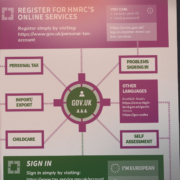Going Limited
Becoming a Ltd company is something that many small businesses consider but some people are scared off by the seemingly ending list of obligations and regulations that come with corporation.
Whilst there are several aspects which differentiate Ltd Companies from self employed entities, going Ltd is relatively straightforward and the advantages are clear.
Here are some key points to consider:
- Setting up is relatively quick and inexpensive. At least one director must be named as well as a Company Secretary. Agents and accountants would then do the necessary filing and within as little as 2 days, a Company Certificate can be acquired.
- The personal assets of Company Directors are separate from the business and in the event of Company cessation, Director’s personal assets are protected. Self employed sole traders and partners however, can lose personal assets in the event of leaving unpaid debtors
- Company names are protected and the Company exists as an entity that can outlive the demise of its members.
- There are a number of tax savings, although these have become less obvious in recent budgets that have attempted to close in on the Exchequer’s “incorporation problem”. Even now though, the absence of National Insurance contributions on dividends and the 21 percent rate of Corporation tax on annual profits up to £300,000 make businesses with modest profits worthwhile to incorporate.
- Are there any good reasons not to go limited?
- Yes. Becoming a Company involves more administration and there are continuing registration requirements involved. Preparation of accounting is also more complicated and therefore incurs an increase in accountancy fees.
- Limited Companies are generally seen as being less flexible and can result in fairly complex structures.
- The use of vehicles can be used as an allowable expense to a sole trader or partnership. This is not the case with Limited Companies.
Becoming a Ltd company is something that many small businesses consider but some people are scared off by the seemingly ending list of obligations and regulations that come with corporation.
- Whilst there are several aspects which differentiate Ltd Companies from self employed entities, going Ltd is relatively straightforward and the advantages are clear. Here are some key points to consider:
- Setting up is relatively quick and inexpensive. At least one director must be named as well as a Company Secretary. Agents and accountants would then do the necessary filing and within as little as 2 days, a Company Certificate can be acquired.
- The personal assets of Company Directors are separate from the business and in the event of Company cessation, Director’s personal assets are protected. Self employed sole traders and partners however, can lose personal assets in the event of leaving unpaid debtors
- Company names are protected and the Company exists as an entity that can outlive the demise of its members.
- There are a number of tax savings, although these have become less obvious in recent budgets that have attempted to close in on the Exchequer’s “incorporation problem”. Even now though, the absence of National Insurance contributions on dividends and the 21 percent rate of Corporation tax on annual profits up to £300,000 make businesses with modest profits worthwhile to incorporate.
Are there any good reasons not to go limited?
Yes.
- Becoming a Company involves more administration and there are continuing registration requirements involved. Preparation of accounting is also more complicated and therefore incurs an increase in accountancy fees.
- Limited Companies are generally seen as being less flexible and can result in fairly complex structures.
- The use of vehicles can be used as an allowable expense to a sole trader or partnership. This is not the case with Limited Companies.
- HMRC Investigate Fraudulent Job Retention Scheme Claims - June 17, 2020
- Worldwide Disclosure – HMRC and Living Overseas - May 21, 2019
- UK Tax Loan Scheme for Pilots Still Up in the Air - March 20, 2019
Ricky worked as an Investigator in the Inland Revenue for over 20 years before founding Steedman & Company in 1987, giving him the experience and knowledge that enabled him to help so many clients over the years.
His appearance on a Channel 4 television programme about the inside workings of Revenue and Customs was watched by 4.1m which sealed his status as one of the most highly respected tax consultants to ever work in Scotland.
Ricky led all tax investigation and COP 9 cases, using his extensive knowledge to help people reach a positive resolution to their situation.
Ricky passed away suddenly and unexpectedly in June 2022 after leaving his indelible mark on the company he founded and headed for over 35 years.






